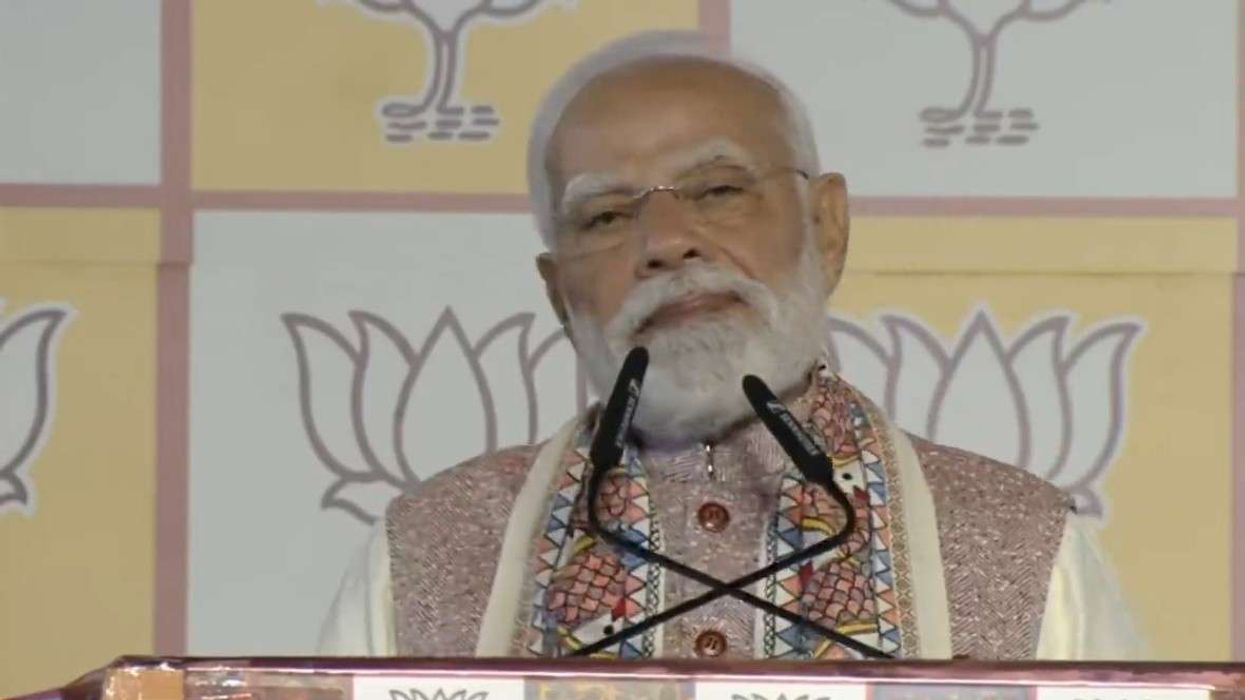Noted Indian contemporary artist Jitish Kallat will present in February Whorled (Here After Here After Here), a new courtyard commission by Somerset House and his first major public commission in the UK.
The striking outdoor installation, over 30 metres in diameter, comprises two intersecting spirals that echo the signage of UK roads and connect the famed neoclassical courtyard of Somerset House to locations across the planet and distant universe.
Whorled (Here After Here After Here), which is conceived as a seismic ripple or a galactic whorl, is aligned to the Earth’s cardinal north-south directions and spiralling outwards from the centre of the Somerset House courtyard.
The work draws upon sacred geometry and alchemical diagrams.
Like much of 49-year-old Kallat’s work, it interlaces the immediate and the cosmic, the past and present. Two vast scrolls, each 168 metres in length, form interlocking spirals and a continuum of text and symbols follows the visual language of UK motorway signage.
As visitors walk through the scrolls, these signs indicate the distance from Somerset House to over 300 locations across the planet and beyond, pointing to celestial bodies, such as the moon, Mars, and distant stars in the Milky Way.
As Kallat’s work playfully reorients the courtyard in relation to a myriad of destinations, both terrestrial and celestial, visitors are invited to take pathways through the interlaced spirals.
Routes through the work map circular movements through space and time. Visitors encounter a continuous shifting of focus as proximate planetary locations border distant and departed supernovae.
Several of the places featured in the work have fallen victim to rising sea levels, while others are known to be under environmental threat of submersion within the next thirty years.
These place names, accompanied by warning and hazard symbols, resonate with Somerset House’s own proximity to the River Thames and London’s vulnerability to flooding.
With exhibition dates that encompass Earth Day 2023, the cyclical movements through space and non-linear time prompt a reconsideration of our relationship with the planet, its past and imminent future, and the wider cosmos.
Whorled (Here After Here After Here) continues Kallat’s long-standing critical engagement with ideas of cosmology, transience and the ecological, having drawn on imaginary maps connecting the everyday and the cosmic for over two decades.
This year’s return of Morgan Stanley Lates, a series of evening performances, music, talks and poetry in the courtyard, will see a live activation of Whorled (Here After Here After Here) in April 2023.
Whorled (Here After Here After Here) is curated by Dr Cliff Lauson, Director of Exhibitions, Somerset House. The installation will be on display at The Edmond J. Safra Fountain Court, Somerset House, from February 16 to April 23.
Whorled (Here After Here After Here) is presented in partnership with the Kiran Nadar Museum of Art, with additional support from Malik & Azmina Karim, SANTI and those that wish to remain anonymous.













